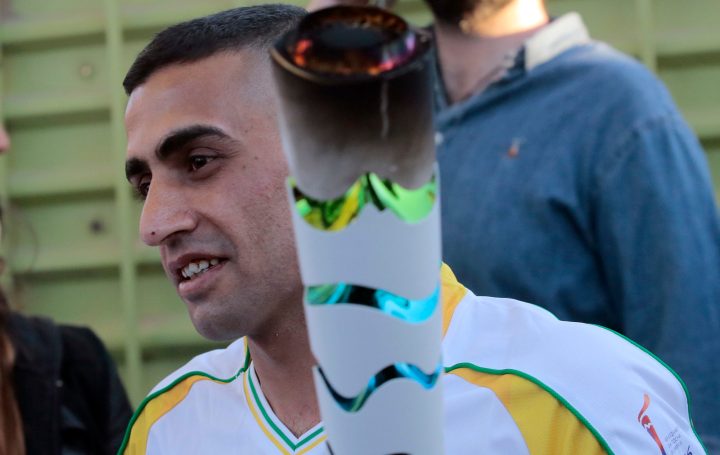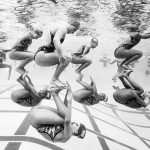OLYMPIC DREAM
From the Euphrates to Tokyo: Syrian refugee who lost leg targets Paralympics

As a teenager in Syria, Ibrahim al-Hussein dreamt of becoming an Olympic swimmer before he lost a leg in the war. Now a refugee in Greece, he is training for a place at the Tokyo Paralympics.
The son of a swimming coach, Ibrahim al-Hussein, 33, began swimming at the age of five in the Euphrates river, which passes by his hometown of Deir al-Zor in eastern Syria. He used a bridge as a diving board until it was destroyed in his country’s civil war.
In 2012, Hussein ran outside to help a friend hurt in a bomb blast, only to be injured himself. His right leg was amputated from the middle of the calf. He later made the dangerous journey to Greece in a wheelchair.
“Anything is possible,” said Hussein, who competed in the Rio Paralympics in 2016 as part of the first ever Refugee Team.
“Ninety-percent of people in the world believe strength is in your hands, in your legs. But strength comes from inside, from the mind,” he said.
More than 50 refugee athletes hope to compete in Tokyo. The International Paralympic Committee plans to send up to six as part of a Refugee Team to be finalised in June. Hussein is determined to be part of it.
“Every moment in the water, I think of the Olympic Games,” he said after a two-hour training session.
“There is something inside me: I have to reach the Olympic Games, I have to reach the World Championships. Even if I lose a second leg, if I lose an arm, I will not stop.”
Hussein crossed to Greece in 2014 in a rubber boat with 80 people. A private doctor eventually got him a prosthetic leg for free and unlike hundreds of thousands of refugees who travelled north to wealthier European countries, he stayed and was granted asylum.
“I wasn’t looking for money,” he said. “I was looking for a homeland, I was looking for family, I was looking for legs. I found it all here.”
Hussein began swimming competitively again in 2015 and with the help of his coach and the Greek Paralympic Committee, competed in Rio in the 50m and 100m freestyle events.
“I don’t swim for myself,” he said. “There are 80 million refugees in the world. I swim for them.”
Hussein said he has rejected offers to compete with Syria and will not return unless the war ends.
“I cannot wear the cap, the tracksuit, which has the same flag as the airplane, as the guns [dropping] bombs on people,” he said. DM


















 Become an Insider
Become an Insider
Comments - Please login in order to comment.